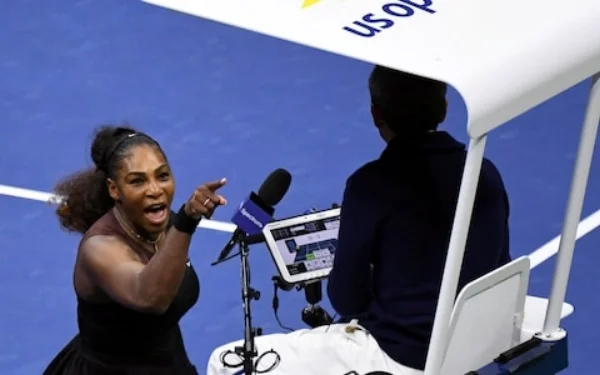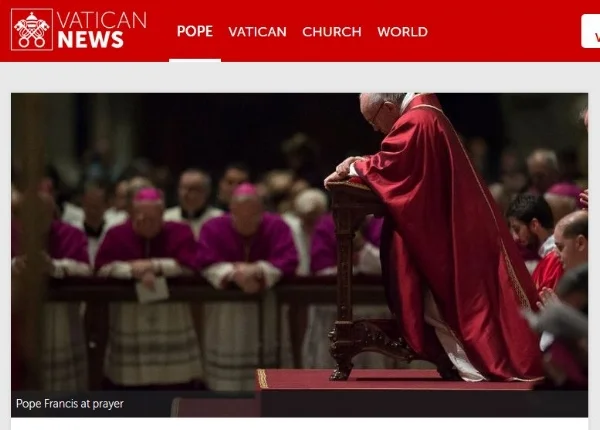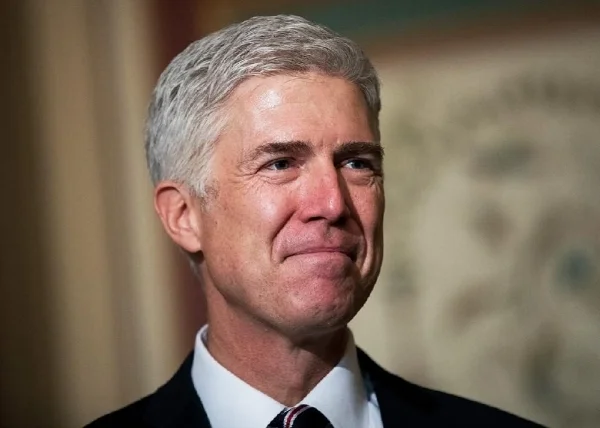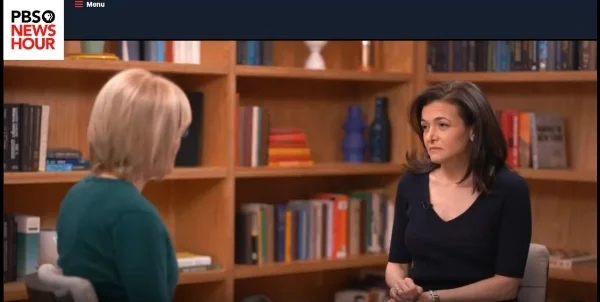Facebook's Messaging Over Time
The Wall Street Journal reports how Facebook has repositioned itself since its founding in 2004.
In 2005, at Harvard, founder Mark Zuckerberg said Facebook’s purpose is to ”look people up” and for “connecting to people.” In 2008, Facebooke expands and messages focus on helping people “share information. . . and share parts of their identity with each other.” In 2010, Zuckerberg’s vision enlarged: “People can have instantly social and personalized experiences everywhere that they go.” Soon after, Zuckerberg focused on problem solving.
In 2012, Zuckerberg said, “Our mission isn’t to be a public company. Our mission is to make the world more open and connected.” By 2013, Zuckerberg was seeing Facebook’s role in selecting governments, getting healthcare access—improving people’s lives.
More recently, given concerns about privacy and misinformation, Zuckerberg’s messages focus on responsibility.
Discussion:
The WSJ video has a negative connotation about Facebook’s changing message, particularly in light of today’s news about shareholder proposals to split Zuckerberg’s roles. Do you agree with this assessment?
How well has Zuckerberg handled messages about the evolution of Facebook in the past 14 years? What, if anything, can he do differently now?
Do you agree with the proposal to split the CEO and chairman jobs? In other words, does Zuckerberg have too power? Does he need help at this point?
How is Facebook’s evolving messaging a potential matter of integrity?
Serena Williams Controversy
Serena Williams lost the U.S. Open women’s final tennis match and criticized umpire Carlos Ramos. A Washington Post article delves into “whether sexism, conscious or not, skews the playing field.”
The writer offers the following evidence:
Ramos still has support from the International Tennis Federation.
London Telegraph published data showing that, for the past 20 years, men received code violation fines almost three times as often as women. The writer acknowledges that men’s games are longer, but she says this doesn’t account for the entire difference.
An Australian newspaper criticized for what some consider a racist image of Williams boldly republished it on the cover with the headline, “Welcome to the PC World.”
The writer offers more evidence on both sides of the issue and suggests changes within the association.
Discussion:
Read more about the situation if you are unfamiliar. What could Williams and Ramos each have done differently?
What’s your view overall? Was Williams treated unfairly? Did she react appropriately?
How do you assess Williams’ response after the incident? How well did she recover from the so-called “outburst”?
What leadership character dimensions are illustrated by this situation?
Changes at Riot Games
Following allegations of sexism, Riot Games has apologized and is making changes. A long report by Kotaku placed blame mostly on the fast company growth and sexist working environment.
Trying to shed its “bro-culture” stigma, leaders have acknowledged that the company could be more inclusive. In a long statement last month titled, “Our First Steps Forward,” the company starts by apologizing to “to all those we’ve let down.” The statement then lists steps the company will take around inclusion initiatives, staffing, training, and so on
In a more recent statement, the company announced hiring a “leadership and strategy expert,” Frances Frei, who had also worked with Uber. The statement includes this quotation from Frei:
“After spending time with Riot’s leadership and many others across the organization, it became clear that Riot is truly putting everything on the table and committing to evolving its culture. In my interactions with Rioters, I’ve seen extraordinary levels of engagement on these issues across the company. Every Rioter with whom I’ve met truly cares about inclusion, which means real change is possible. Riot isn’t interested simply in fixing problems on the surface, it has the ambition to be an industry leader and to provide a roadmap for others to follow. I share that ambition and am eager to help Riot navigate this process.”
Discussion:
Read Kotaku’s report. How credible do you find the investigation and reporting? What could increase the credibility?
Assess Riot Games’ statement. Who is the audience and what are the communication objectives? How do the organization, writing style, and tone affect your assessment?
Now assess the statement about Frei. What’s your view of including Frei’s statement? What else, if anything, should be included in the statement?
Overall, how well is Riot Games demonstrating accountability? What other leadership character dimensions are demonstrated?
Alibaba's New Chairman and Ma’s Letter
Following Jack Ma’s departure next year, Daniel Zhang will become Alibaba’s new chairman. Referring to himself as a “free and noncooperative person,” Zhang is the presumed choice because he’s been CEO since 2015. Someone who knows Zhang explained why he may have chosen the phrase “free and uncooperative”: “[H]e’s always chasing and seeking—to be free and not tied down to anything.”
A Bloomberg report describes Zhang as a “rising star” who did a great job implementing Ma’s strategy and vision and is “taking the company to the next level.”
A press release on the company website includes a letter from Jack Ma, which expresses confidence in Zhang:
“Daniel has been with Alibaba Group for 11 years. Since he took over as CEO, he has demonstrated his superb talent, business acumen and determined leadership. Under his stewardship, Alibaba has seen consistent and sustainable growth for 13 consecutive quarters. His analytical mind is unparalleled, he holds dear our mission and vision, he embraces responsibility with passion, and he has the guts to innovate and test creative business models. Deservedly, China’s business news media has named him the No.1 CEO in 2018. For these reasons, he and his team have won the trust and support of customers, employees and shareholders. Starting the process of passing the Alibaba torch to Daniel and his team is the right decision at the right time, because I know from working with them that they are ready, and I have complete confidence in our next generation of leaders.”
The letter ends on an emotional note: “The one thing I can promise everyone is this: Alibaba was never about Jack Ma, but Jack Ma will forever belong to Alibaba.”
Discussion:
Read the entire press release. Who is the audience? How would you describe the organizational structure?
The press release with Ma’s long letter included is unusual. We don’t see a quotation from Zhang; typically, an incoming executive will be quoted. Why do you think this was excluded? What could Zhang have said?
Pope Francis's Letter
Pope Francis has joined the conversation about sexual abuse in the Catholic church after 1,000 victims and 300 perpetrators were identified by a grand jury investigation report in Pennsylvania. The report also revealed how the church systematically covered up the abuse over a 70-year period.
In an open letter, which is posted on Vatican News, expresses empathy early and often, for example, in this passage:
In recent days, a report was made public which detailed the experiences of at least a thousand survivors, victims of sexual abuse, the abuse of power and of conscience at the hands of priests over a period of approximately seventy years. Even though it can be said that most of these cases belong to the past, nonetheless as time goes on we have come to know the pain of many of the victims. We have realized that these wounds never disappear and that they require us forcefully to condemn these atrocities and join forces in uprooting this culture of death; these wounds never go away. The heart-wrenching pain of these victims, which cries out to heaven, was long ignored, kept quiet or silenced.
Pope Francis's letter follows one by Pope Benedict XVI in 2010, when abuse in Ireland became widely known.
Discussion:
- Compare the two letters. In what ways are they similar and different? How might the circumstance and timing affect each approach?
- How is the letter organized? How would you describe the tone?
- Which character dimensions does Pope Francis demonstrate in his letter?
Airline CEOs Defend Seat Size
American and Delta Airlines CEOs sit in small plane seats to explain the rationale and defend shrinking seat sizes. Doug Parker and Ed Bastian, both 6' 3" tall, agreed to talk to a WSJ writer, while United CEO Oscar Munoz declined.
Both CEOs say they fly coach for short trips. Bastian started a policy that Delta directors must fly coach when traveling less than three hours. Of course, as the article points out, suffering three hours in a small seat isn't quite the same as 24.
The executives say that flight amenities, such as WiFi, make up for any discomfort from smaller seats. American's Parker says that customers don't complain and that the airline hasn't "done anything that makes the main cabin product less desirable than it was before." The airlines are also focused on providing larger seats for higher fares.
Another WSJ article explains what airlines consider when making seats comfortable.
Discussion:
- How does this story illustrate character dimensions such as compassion, vulnerability, and humility?
- Did the CEOs do the right thing by agreeing to participate in the article? What are the risks and benefits?
- Why would United CEO Oscar Munoz decline? Was this the right decision for him and the airline?
- What persuasion tactics do the CEOs use to convince us that flying coach is not so bad?
- Do you agree with the CEOs' assessments about small seats? What has been your experience?
Cold Email Examples
The CEO of Mapistry, a start-up software company for storm water compliance, posted and analyzed her past emails to VCs, venture capitalists who could invest in her company. Allie Janoch disputes the claim that you need an introduction to a VC; she has had some success in sending cold emails.
Her first email, Janochs admits, says little about her company and undermines the message with self-deprecation.
She didn't get a response. Her second email, when her company had more traction, includes a specific subject, focuses on problem solving, uses bullets for important data points, and is personal.
Discussion:
- What do you consider the strength's of Janoch's second email?
- What improvements could she make?
- How does each email demonstrate humility? The first, as Janoch says, is self-deprecating. What's the potential problem with this approach? How does the second email demonstrate humility as well as confidence? How well does Janoch balance the two?
McDonald's Ramadan Commercial
An American colleague working in Singapore sent me this McDonald's commercial about Ramadan, the Muslim holy month of fasting. The YouTube caption reads, "Sharing food creates a bond like no other. This Ramadan, McDonald's brings you even more reasons to share."
We see an industrious McDonald's employee, delivering food as he gets weaker because of fasting. At the end, a customer offers him food when it's time to break the fast.
The response has been positive, with one user commenting that he would like to see ads like this in the United States. A McDonald's representative expressed her views of the response:
"We're truly humbled and encouraged by the positive response received from our latest video."
"We wanted to celebrate Singapore's community spirit of human kindness, sharing and togetherness during this Ramadan month, and what better way than to do it through the lens of our McDelivery riders - who connect our brand with our customers, door to door."
"It's our small way of appreciating those working tirelessly behind the scenes to deliver meals and enabling the bonding and sharing moments during this occasion."
Discussion:
- Why do you think the video is getting such a strong positive response?
- Would such a commercial be successful in the U.S.? Why or why not? Consider cultural differences between Singapore and the U.S.
- The McDonald's representative says they are "humbled." What does she mean by this, and how does it relate to definitions of humility?
MSU's Denial as a Cultural Issue
A Chronicle of Higher Ed article blames Michigan State University's ambitions and culture for their leaders' lack of response to years of sexual abuse on campus. More than 12 people knew of complaints against physician Larry Nassar, but the abuse continued for years.
Lou Anna K. Simon's leadership is questioned in the article. Although clearly a committed leader to the university, Simon is criticized for focusing so much on "two decades of status-climbing" that a culture of denying any wrongdoing evolved. One of the trustees summed up the issue in a letter and emphasized "We must embrace our obligation to apologize and offer justice."
Apologizing may be a sore subject for the trustees because Simon avoided it in the case of Larry Nassar's victims, according to the Chronicle article:
She talked about how “it is virtually impossible to stop a determined sexual predator and pedophile, that they will go to incomprehensible lengths to keep what they do in the shadows.” She often used “regret,” “sympathize,” and “acknowledge” in her written statements, but not “apologize.” She emphasized that sexual assault is a societal problem, not a Michigan State one. She highlighted all of the steps the university had taken to prevent sexual misconduct.
Discussion:
- Analyze the trustee's letter. What principles of business writing are followed? What are the strengths of the letter, and what could be improved?
- The trustee encourages MSU leadership to listen. What does he mean by this, and how would listening help the situation?
- What is the value of apologizing and admitting failure? What are the potential downsides, particularly for a university trying to improve its stature?
- This story illustrates several failings of leadership character. Which can you identify, and which do you think are most relevant here?
Supreme Court Justice's Writing Style
Supreme Court Justice Neil Gorsuch is getting so much attention for his writing that #GorsuchStyle is trending. Lauded before he joined the court, Gorsuch's writing is now criticized as a sidetrack "history lesson," "garbled," and "exhausting to read." Critics cite examples and wonder why a justice is spending time on alliteration:
“Disruptive dinnertime calls, downright deceit and more besides drew Congress’s eye to the debt collection industry.”
Another hallmark of his new style is making a pithy comment and then explaining its meaning as in this example:
"Chesterton reminds us not to clear away a fence just because we cannot see its point. Even if a fence doesn’t seem to have a reason, sometimes all that means is we need to look more carefully for the reason it was built in the first place."
A Yale student analyzed Gorsuch's court decisions. Compared to others' writing, he used more contractions (3.9 per 1,000 words compared to 0.8) and started sentences with words such as “and,” “but” and “so” more often (4.9 times out of every 1,000 words compared to 1.5). Analysts seem to agree that his style is getting less formal, but he also likes to draw attention to himself.
Discussion:
- What is the value of alliteration and other rhetorical devices? When are they best used, and when are they best avoided?
- Gorsuch's seeming desire to call attention to himself contradicts business writing and leadership character principles. Which ones?
- Why might Gorsuch's style change over time?
- What distinguishes your writing style? Can you identify a sentence structure, phrase, or structure that you use often—and maybe too often?
- Slate writer Mark Joseph Stern analyzed another passage and identified several examples of "fat." Try to improve conciseness in this paragraph. How many extraneous words can you omit?
The Court today clears away a fence that once marked a basic boundary between federal and state power. Maybe it wasn’t the most vital fence and maybe we’ve just simply forgotten why this particular fence was built in the first place. But maybe, too, we’ve forgotten because we’ve wandered so far from the idea of a federal government of limited and enumerated powers that we’ve begun to lose sight of what it looked like in the first place.
More About the Starbucks Bias Situation
After the arrest of two black men in a Philadelphia store, Starbucks announced that 8,000 stores will close on May 29 for racial-bias training. But are some skeptical about the impact that one day of training will have, and the company seems to be imitating Chipotle's decision to close stores for food safety training. On the other hand, the company could have blamed the employee who called the police, a crisis communication strategy we have seem in many other situations.
An article in the New York Times describes racial bias research in hospitality customer service and may tell us more about the incident in Philadelphia. In one study, researchers sent emails to hotels using different names that reflected gender and race, asking for restaurant recommendations. Responses indicated racial bias, as the authors describe: "Hotel employees were significantly more likely to respond to inquiries from people who had typically white names than from those who had typically black and Asian names."
In addition, researchers analyzed "politeness," for example, whether employees wrote "best" or "sincerely" before signing their name. They were more likely to use such words when responding to guests with names that sounded white, and the authors describe another finding for this group:
They were three times as likely to provide extra information — even when the initial inquiry was just about restaurants — to white than to black or Asian people.
In addition to training, the authors suggest periodic customer service audits and consistent scripts and policies.
In a turn, Philadelphia Police Commissioner Richard Ross has apologized to the two men who were arrested. In his original video, Ross defended the officers actions and said, based on a sergeant's experience at Starbucks, "they are at least consistent in their policy." But in the news conference, Ross says, "shame on me" and "I have to do better."
Discussion:
- What's your view of the research about customer service at hotels? What does the research potentially say about the situation at Starbucks?
- Have you experienced bias in a customer service setting? What was the situation, and how did you handle it?
- How well does Ross handle the apology in the news conference? How does his identity factor into his response? How does he demonstrate authenticity, vulnerability, and other leadership character dimensions?
Zuckerberg Testifies Before Congress
In many hours of testimony, Facebook CEO Mark Zuckerberg did his best to address lawmakers' questions about data privacy and, surprisingly, how Facebook works. Senators and Members of Congress asked questions about texting, about how the company makes money without a subscription model (Zuckerberg: "We sell ads."), whether Facebook owns users' data, whether Facebook sells data, how many "data categories" Facebook collects, and so on. This video compilation does not reflect well on our lawmakers.
Zuckerberg himself seemed surprised by some of the questions and wasn't fully prepared to answer them. A reporter captures a photo of Zuckerberg's notes, which are what we would expect, but it's fun (in a voyeuristic way) to see them.
On the second day of testimony, questions improved, and many focused on Facebook's treatment of conservative political views. These were fair questions, and Zuckerberg admitted they had made mistakes in screening some content as inappropriate. But several representatives seemed to ask similar questions about this and about the consent agreement with the FCC, as if the question hadn't been asked just moments earlier.
In a New York Times Daily Podcast, reporters discussed Zuckerberg's continued references to starting Facebook in his dorm room. They believed the strategy was a good one for demonstrating his humanity (emotional appeal) but was potentially damaging for his credibility because it reminded lawmakers that he is only 33 years old. A seat chair, which internet trolls called a "booster seat," didn't help.
Wall Street responded well to Zuckerberg's testimony, with the stock price rising both days.
Discussion:
- What's your view of Zuckerberg's testimony? Watch as much as you can tolerate.
- Should lawmakers have a better understanding of Facebook? What is their level of responsibility?
- Identify a few specific questions and Zuckerberg's answers. What leadership character dimensions does he demonstrate, and how could he have improved?
- Watching the testimony, how would you assess his authenticity? Do you know more about him as a person? Should we?
An Interview with Sheryl Sandberg
During an interview with Judy Woodruff on PBS NewsHour, Facebook COO Sheryl Sandberg admitted mistakes and discussed plans for improving users' privacy. Sandberg didn't shy away from tough questions about Facebook's role in protecting users' information and admitted that the site had an important role during the 2016 presidential election, at least to get people to register to vote.
On whether Cambridge Analytica still has data, Sandberg admitted, "We were given assurances by them years ago that they deleted the data. We should’ve followed up. That’s on us. We are trying to do a forensic audit to find out what they have." She also said the company had "under-invested" in ways to protect users' information.
Viewers may notice that Sandberg repeatedly says versions of "That's a very good question." This could be a tactic to delay responding, or it could be that Woodruff asks good questions! Sandberg would be the first to acknowledge that many of the questions are ones the company leaders are asking themselves at this point. As pioneers, Facebook executives are reconsidering how people use the site and for what purpose.
Discussion:
- Assess Sandberg's presentation skills. How well does she deliver her ideas and address questions?
- What principles of persuasion does Sandberg demonstrate in the interview?
- What else, if anything, could Sandberg have said during this interview to rebuild trust in the company?
Defense for Rudeness: "I'm French"
A waiter in at Milestones Bar + Grill in Vancouver, British Columbia, was fired for being rude. Guillaume Rey doesn't argue the point, but he has filed a lawsuit claiming his termination is discriminatory.
As part of the suit against the parent company, Rey said the decision was "discrimination against my culture," which “tends to be more direct and expressive." On the other hand, Rey signed documentation with the restaurant that states, “intentionally speaking to a Guest or Associate in a rude or unfriendly manner" may be cause for termination.
The restaurant tried to get the case dismissed but failed. A judge explains the ruling:
Given that there is at least some evidence supporting an inference that Mr. Rey’s ancestry was a factor in the termination, and given how little other information I have about what happened, I cannot find that the Restaurant has met its burden on this application.
Discussion:
- Read the court's findings. What were the restaurant's arguments? What are Rey's arguments?
- Do you agree with the judge's decision at this point? Why or why not?
- How does this situation demonstrate humility or a lack of humility?
Turnaround for Martin Shkreli
We see a different Martin Shkreli from the one criticized for smirking during a congressional hearing on Capitol Hill in 2016. Shkreli ran Turing Pharmaceuticals when the company was accused of raising drug prices 5,000% in 2015. At the time, he was only 28 years old and was called "the most hated man in America."
Last week, Shkreli was sentenced to seven years in prison for fraud committed while he was a hedge fund manager and while running another drug company, Retrophin.
Shkreli pleaded for leniency. According to a CNBC report, he "broke down in tears." Another article summarizes his statements in court:
"The one person to blame for me being here today is me," a choked-up Shkreli told a judge before she imposed the prison term in Brooklyn, New York, federal court.
"Not the government. There is no conspiracy to take down Martin Shkreli."
"I took down Martin Shkreli with my disgraceful and shameful actions."
"This is my fault. I am no victim here," Shkreli said, before breaking down into tears as he promised not to let his lawyer Benjamin Brafman down in his efforts to contribute to society.
"Do not feel bad for me," Shkreli told a packed courtroom that included supporters and family members, many of whom had written letters asking Judge Kiyo Matsumoto to spare him from a harsh sentence.
And he had a message for the investors he duped: "I am terribly sorry I lost your trust. ... You deserve far better."
"I was never motivated by money," Shkreli said. "I wanted to grow my stature and my reputation."
"I am here because of my gross, stupid and negligent mistakes I made."
Discussion:
- Let's assume Shkreli's statements are sincere. How could you explain Shkreli's smirking in 2015 at such as serious hearing and his behavior more recently?
- Do you believe Shkreli's statements are sincere? Why or why not?
Is Blankfein Leaving Goldman?
It's big news on Wall Street: the 12-year CEO of Goldman Sachs is leaving the company. But Lloyd Blankfein and other Goldman executives say they were surprised to read the Wall Street Journal report.
CNBC's Jim Cramer said the news made sense because Goldman has two co-presidents who are vying for the position: "Blankfein is deeply committed to letting a newer generation" lead.
Blankfein tackled some tough times at the investment bank. The firm managed well through the Great Recession despite criticism for misleading customers, for which Goldman paid $550 million to the SEC as a settlement. In 2009, Blankfein faced criticism when he, perhaps jokingly, told a reporter Goldman was "just doing God's work." He was positioning the firm as having a "social purpose." Finally, in 2012, a Goldman executive wrote a scathing report about the company in a New York Times opinion piece, "Why I Am Leaving Goldman Sachs."
For now, we don't know how true the WSJ report is.
Discussion:
- The Wall Street Journal report is very clear, although it doesn't identify sources, but that is typical. How do news reports like this happen? Who is responsible if it is a mistake?
- How well did Blankfein handle the situation? What, if anything, should Goldman communicate as a company at this point?
United Backs Off of Bonus Plan
United announced moving to a lottery system for employee bonuses, but backlash caused management to rethink the plan. President Scott Kirby had distributed a memo describing the new process:
"As we look to continue improving, we took a step back and decided to replace the quarterly operational bonus and perfect attendance programs with an exciting new rewards program called 'core4 Score Rewards.' "
The new program would include cash and other prizes and one quarterly prize of $100,000, which would be given to a random, eligible employee. Following the criticism, a spokesperson tried to clarify:
"We announced a new internal program based on United meeting certain operational and dependability metrics as a way of offering meaningful rewards to our employees. We believe that this new program will build excitement and a sense of accomplishment as we continue to set all-time operational records that result in an experience that our customers value."
Employee comments were harsh:
"Why should I be happy watching another employee get rewarded for my hard work? How would you feel if Oscar (United CEO Oscar Munoz) played roulette with your incentive package and it went to another vice president through a lottery drawing."
"This is truly disappointing. The current program 'costs' the company approximately $150 per 75,000 employees per quarter, totaling over $11 million. This new 'improved' program that we are supposed to be so excited about will cost the company $3.5 million per quarter. This saves the company about $8 million per quarter. Does Willis Tower really think the average front-line employee is stupid?"
In a second memo three days later, Kirby announced a pause on the program, saying they would "consider the right way to move ahead" and "will be reaching out to work groups across the company, and the changes we make will better reflect your feedback."
Discussion:
- What went wrong? Was it the bonus/lottery plan, the way it was announced, both, or something else?
- One employee commented, "Wow. I thought our morale was already as low as it could go, but I guess that was naive thinking on my part. I'm finally starting to understand that there will always be room for management to make me feel even less appreciated than I already do. How many times must they be taught, that if the employees aren't happy, no one is happy." What should the company leaders do now?
- The memos and employee comments were on an internal United system. What are the ethics of forwarding internal communications to the media?
Travis Kalanick Gets a New Role
Travis Kalanick's dramatic fall from Uber has a potential happy ending. Kalanick has joined the board of health company startup Kareo, run by Dan Rodrigues. Kalanick was an angel investor in Kareo, and he and Rodrigues founded a music company in the late 1990s.
Rodrigues announced the appointment in an email to Kareo employees:
I’m very excited to have Travis join our board. He is one of the most successful entrepreneurs of our generation. He has not only scaled a high-growth company, but transformed an entire industry. Travis and I have a long-standing relationship that goes back more than 20 years. We were classmates at UCLA and co-founders at Scour, a peer-to- peer search engine company in the late 90’s. Travis made an early-stage investment in Kareo in 2009. He has been an enthusiastic believer in our vision since our inception and he is excited to work with us more directly to bring innovation to healthcare and help us reach our goals for market leadership.
This is Kalanick's first venture after being ousted from Uber and is encouraging for leaders who have experienced failure. He has been quiet on Twitter since January but tweeted the good news and highlighted his relationship with Rodrigues.
Discussion:
- What other examples do you know of fallen leaders getting a second chance? Will we see this for Harvey Weinstein?
- Assess the email to Kareo employees. What does the CEO want to accomplish? How well does the message meet these objectives?
- How much do you think the friendship between Kalanick and Rodrigues factors into his board assignment? Why would Rodrigues emphasize their relationship in his email?
KFC Shuts Stores and Blames DHL
About 900 KFC UK restaurants closed because they didn't have chicken. A problem with DHL as their new transportation partner caused the problem, which upset customers so much they called the local police and Parliament.
The company has been sending steady messages and is trying to find humor in the situation. A spokesperson said, "We know that this might have inconvenienced some of you over the last few days, and disappointed you when you wanted your fried chicken fix — we're really sorry about that. Shout out to our restaurant teams who are working flat out to get us back up and running again.” A notice on the company website reads, "Thanks for bearing with us," and lists other locations nearby.
In addition, KFC posted a message on Twitter:
Another post read, "KFC runs out of chicken. You couldn't make it up, but we'll make it up to you. Join the Colonel's Club and get a finger lickin' reward when your restaurant opens."
Discussion:
- How well do you think KFC is communicating about the situation?
- DHL made a big announcement in October of 2017: "KFC revolutionizes foodservice supply chain with DHL." But a press release about the current situation is nowhere to be found. Should the company be more vocal?
- Is it appropriate for KFC to blame DHL? In what ways does this both demonstrate and lack accountability?
Critics Say Bank of America Fees Hurt People with Less Income
Customers want Bank of America to stop charging fees for accounts with low balances. The company ended its free checking account and will start charging $12 per month.
Critics say the decision disproportionately hurts low-income consumers. The president of a financial advocacy organization explains the consequences:
“The debate over Bank of America’s accounts and fees points to a larger economic justice issue — people with less income pay more to get cash, make payments, and conduct their business. Without access to safe and affordable bank accounts, low-income consumers often turn to costly alternative financial services, such as currency exchanges or check-cashers. The bottom line is: the most financially vulnerable need more and better options to transact their business and participate in the financial mainstream.”
Few big banks still have free checking options because they are expensive to maintain. Banks prefer to move customers to digital solutions. But many low-income people don't have smartphones or reliable internet access. More than 287,000 people have signed a Change.org petition.
Discussion:
- What's your view? Is Bank of America being unfair, or is this just a good business decision?
- What is the value of a petition? On what principles of persuasion does a petition rely?
- How well does the image on the petition site, shown here, work? The emotional appeal is obvious. Does it help or detract from the message?



































